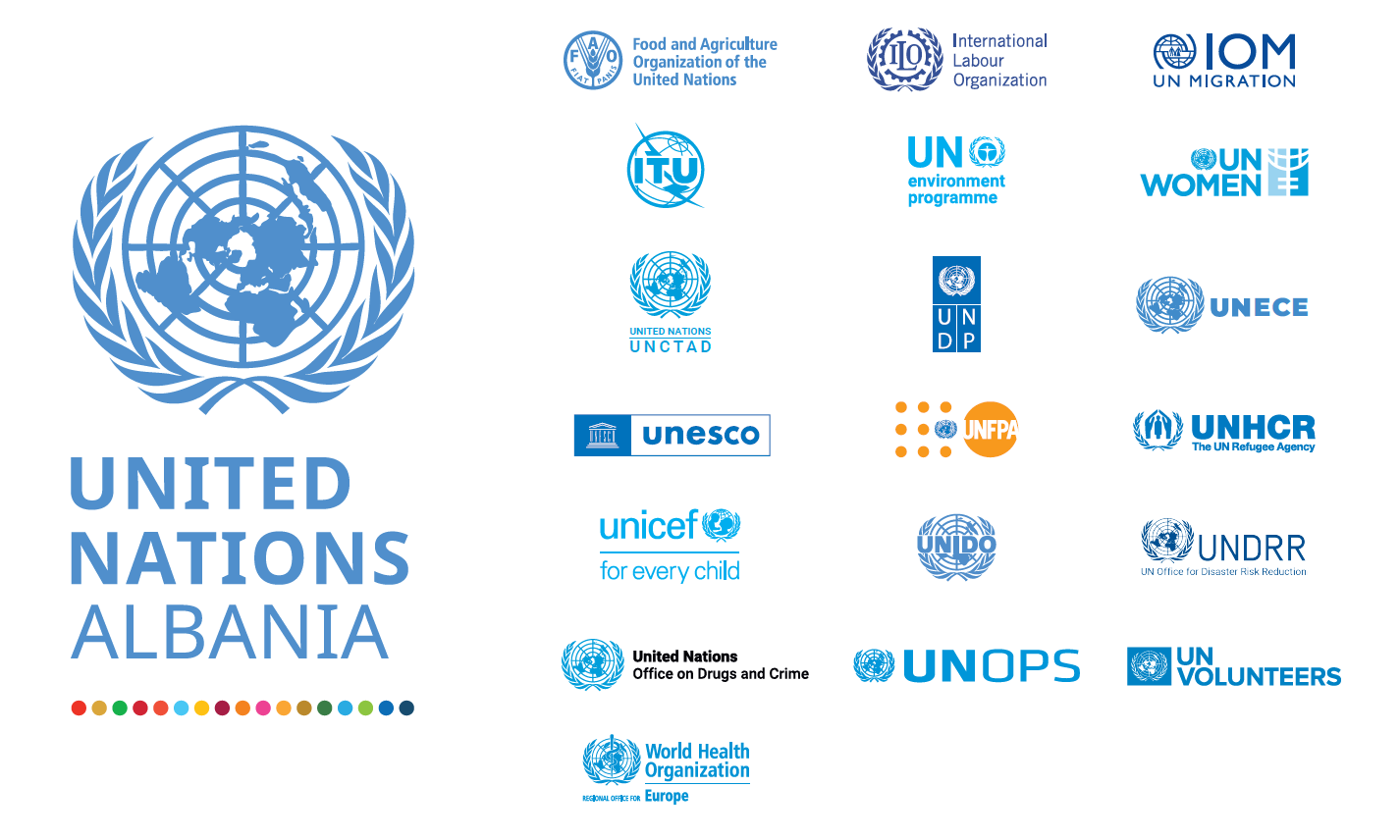Dear partners and friends,
We are pleased to present the 2024 Albania Progress Report of the United Nations in Albania. The report highlights the collective achievements in advancing the country’s journey toward the 2030 Agenda for Sustainable Development and its integration into the European Union. These efforts are guided by the Government of Albania–UN Sustainable Development Cooperation Framework (UNSDCF) 2022–2026.
The accomplishments showcased in this report reflect the critical role that partnerships play in ensuring the successful implementation of the Framework, with strong and ongoing collaboration among the UN, government, the private sector, civil society, academia, and international partners. Their combined efforts have been essential to achieving these successes.
Significant achievements include two transformative joint programmes financed by the Sustainable Development Goal Fund: Digital Agriculture and Rural Transformation (DART) and Lifelong Empowerment and Protection in Albania. Meanwhile, the country’s first National SDG Roadmap was successfully created, with other initiatives such as the Women Entrepreneurship Expo aiming to foster an inclusive business environment, with six companies joining the UN Global Compact and 38 pledging support for the Women’s Empowerment Principles.
Our support for building the country’s human capital focuses on effectively implementing reforms in social care, education, and healthcare. Albania’s participation in the Global Accelerator on Jobs and Social Protection for Just Transition underscores its commitment to advancing labour policies, social welfare, and inclusive measures for vulnerable groups. Adoption of the Social Protection Strategy (2024–2030) and the Social Inclusion Policy (2024-2028) lays the foundation for enhanced services and the inclusion of vulnerable groups of the population.
Repair and reconstruction of 66 education facilities damaged by the 2019 earthquake benefited more than 24,000 students, and training was provided for more than 1,300 teachers in inclusive education and digital learning. Investments include the establishment of 47 IT labs, 107 science laboratories, 56 psychological–nursery rooms, and 66 sports fields and gyms. Primary healthcare advancement, emergency preparedness, and effective public health management are central to Albania’s health strategy. A transparency portal and a GIS platform aim to improve planning and address infrastructure needs, while vaccination, child nutrition monitoring, and emergency preparedness have been improved.
Green growth and efforts to combat climate change have driven progress in climate-smart agriculture, vocational education, and digital transformation. Employment and skills development initiatives reached thousands of individuals, while work on the green and blue economies saw gender integration in tourism, and the revitalization of Albania’s cultural heritage, with 18 cultural sites benefiting from restoration and upgraded facilities. Implementation of the groundbreaking DART aims to leverage digitalization to advance sustainability goals with systemic interventions aimed particularly at smallholder farmers. The country also advanced in fulfilling its commitments under the Montreal Protocol by implementing systems to phase out ozone-depleting substances and adopting low-global-warming technologies.
Albania made progress in governance and human rights, underpinned by key policy changes and strategic interventions. The country is improving access to justice, particularly for marginalized populations. Ongoing investments in legal aid, judicial efficiency, and a child-centred approach to justice are creating a more inclusive and responsive legal system. The implementation roadmap of the Convention on the Elimination of All Forms of Discrimination against Women, and the National Migration Strategy 2024–2030, is supporting the alignment of national laws with international human rights standards. Additionally, the finalization of the Population and Housing Census 2023 is a significant achievement enabling detailed analysis of trends, disparities, and needs across the population.
Gender equality in Albania has been supported by a robust legal framework and improvements in key indices. The country has made notable progress in advancing gender equality and addressing violence against women and children. Support from the UN enhanced services for survivors of domestic violence, trafficking, and other forms of abuse, providing both immediate assistance and long-term empowerment for women and children from vulnerable groups.
Gender-responsive budgeting has become an integral part of Albania’s financial planning. As a result, 59 per cent of budgetary programmes for 2025 now incorporate gender-specific objectives, driving more equitable resource distribution and policy implementation. Additionally, efforts to strengthen national gender equality mechanisms are bolstered by legal reforms.
We extend our deepest appreciation to all our partners for their invaluable contributions and look forward to continuing our collaboration in 2025, working together to build a more resilient, inclusive, and sustainable Albania. We invite you to read our report and explore the progress made in Albania in 2024!
Fiona McCluney
Resident Coordinator
United Nations in Albania
Agencies, Funds and Programmes
comprised UNCT in Albania, chaired by the UN Resident Coordinator, the designated representative of the UN Secretary General for development operations in the country.
Million USD
collectively delivered by UN Agencies in Albania
of funding
was committed in-country
of funding
on Human Capital Development
of funding
on Green Growth, Innovation and Climate Change
of funding
on Governance, Rule of Law and Human Rights
of funding
on Gender Responsive Governance


